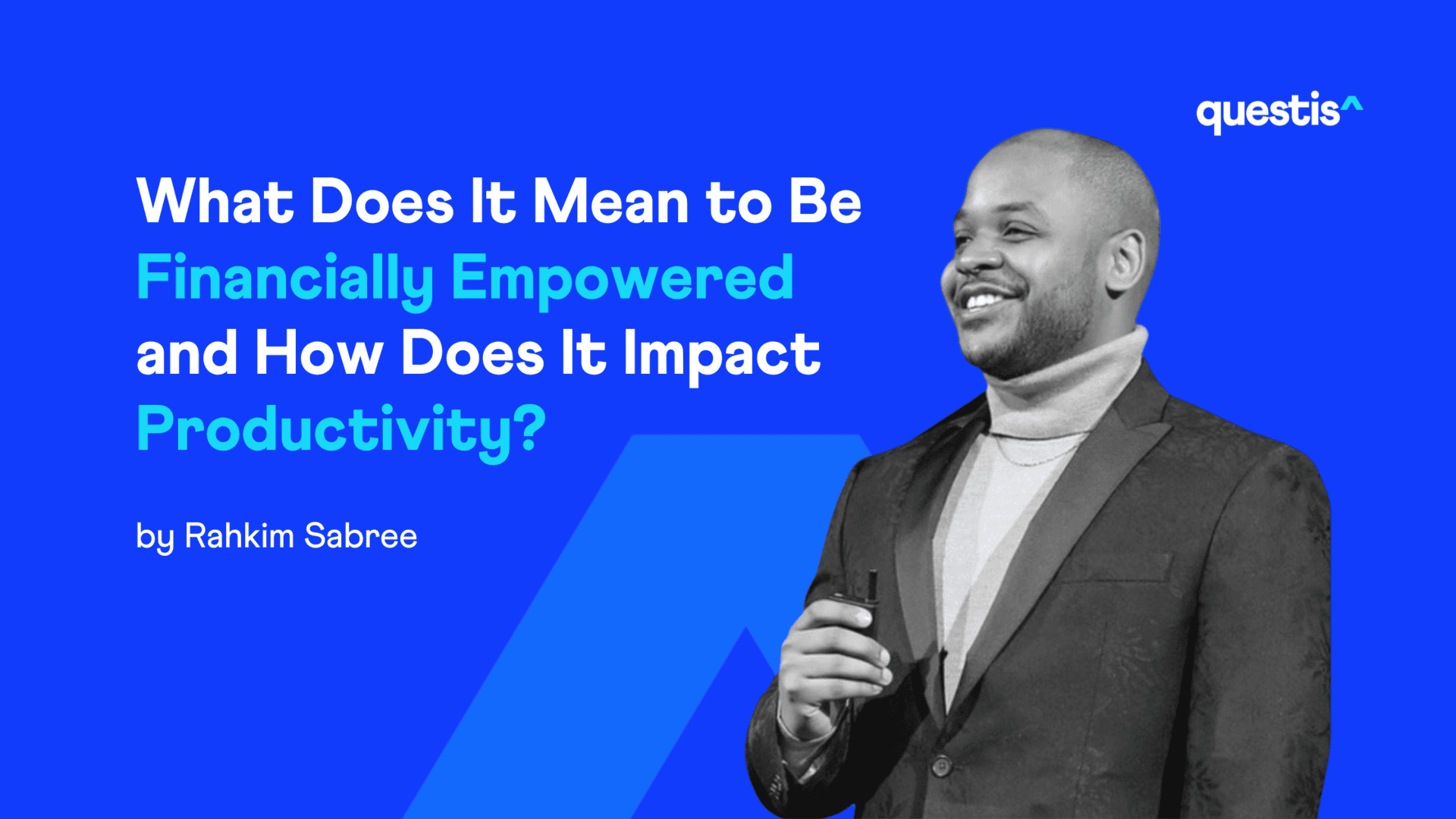Financial empowerment–different from financial literacy–means that you have the combination of skills, knowledge, confidence, and income to make life decisions with intentionality rather than scarcity or survival. The terms are often used interchangeably as a kind of buzz phrase that can leave many confused around how to process feelings of guilt, anxiety, or fear when considering whether or not they earn enough, or earn too much. It also shines a light on internalized traumas around self worth that can vary on an individual level spanning the topics of race, gender, age, and other protected classes.
A lack of financial empowerment contributes to the racial wealth gap, the gender pay gap, and even rates of attrition despite base salary, bonuses, and traditional benefits (401(k), HSA/FSA, medical, dental). That’s because it doesn’t speak to the way employees feel about money, the traumas they may have relating to money, and the taboo discussion that might occur in the workplace relating to differences in what compensation looks like from employee to employee.
It’s About More Than The Money
Some employees stay in abusive relationships with their employer simply because they feel like they don’t have another option. Regardless of how much many earn, they live at or above their means. The idea that financial literacy can solve this is only partially true. The assumption that a better financial education can rectify a bad financial situation doesn’t acknowledge the people who know what they should do financially but can’t afford to, or acknowledge the people who feel that their high income correlates with being financially savvy.
Financial empowerment places less emphasis on how much someone earns or how much financial knowledge they have and more focus on how they feel about money as a whole enabling healthier decisions that have financial implications but may not be solely financial in nature. We see evidence of this during what’s been dubbed “The Great Resignation” or “The Great Reshuffle” when employees, unhappy with their current jobs or careers, resigned. Whether their new journey took the shape of entrepreneurship or entering a new industry, there are many stories of choice between accepting a toxic work environment or prioritizing mental health; taking a reduction in salary to pursue a passion vs. the daily grind. While some accounts describe taking a leap of faith without financial preparations, others described having an emergency fund of sorts to weather times of uncertainty or discovery.
Transparency and Advocacy
As more state laws require employers to share salary details with applicants, there has been an increase in conversation around ‘knowing your worth’ and asking for it. While websites like Glassdoor provide salary insights in the form of ranges, a lack of financial empowerment too often causes an eager applicant to accept the lower end of the pay spectrum simply because it’s higher than what they currently earn rather than the objectives of the new role and pay.
Even some recruiters feel the onus is on the applicant to do the research and come up with an appropriate salary requirement lest they be paid what they ask for even if it’s significantly less than what’s budgeted for the role. In January of 2022 a recruiter went viral for offering a candidate $45,000 less than what was budgeted for the role after sharing details of the exchange on Twitter. While one could feel this is abusive behavior on the part of the company the recruiter represents, the applicant might have been thrilled with the salary offered if they were coming from a role that paid significantly less . The missed opportunity around advocacy on the part of the recruiter could have been a lesson in financial empowerment for the candidate which may have a positive impact on their future productivity and commitment to the company.
Financial Empowerment’s Impact On Productivity
Incentives around pay might attract and retain employees, it also may prevent them from being properly engaged in their role; and not for a lack of will or skill. Outside of the workplace walls (virtual or literal) there is the financial burden that comes with lifestyle expectations gnawing at employee’s subconscious. It’s hard to maintain focus when you’re worried about the next bill or expense especially if you don’t think enough of yourself to save before spending rather than waiting to see what’s left afterwards.
A financially empowered employee can acknowledge the desire for more income while implementing best financial practices with what they already have access to, leveraging the tools and resources available to create a plan from a place of intentionality rather than survival or trauma. Financial empowerment helps to handle the pressure to perform despite the fear of job loss or financial emergency, creating space for employees to be fully present in the work they do thus increasing not only productivity but also engagement.
About Rahkim Sabree
 Rahkim Sabree, CFEI is an author/columnist, speaker, and financial coach focusing on the pathways between financial literacy and financial empowerment. Rahkim is the author of the bestselling book “Financially Irresponsible” and has been published in Business Insider, The Grio, Black Enterprise, Entrepreneur, CEO World Magazine, and more. He can be reached via his website at www.RahkimSabree.com.
Rahkim Sabree, CFEI is an author/columnist, speaker, and financial coach focusing on the pathways between financial literacy and financial empowerment. Rahkim is the author of the bestselling book “Financially Irresponsible” and has been published in Business Insider, The Grio, Black Enterprise, Entrepreneur, CEO World Magazine, and more. He can be reached via his website at www.RahkimSabree.com.
